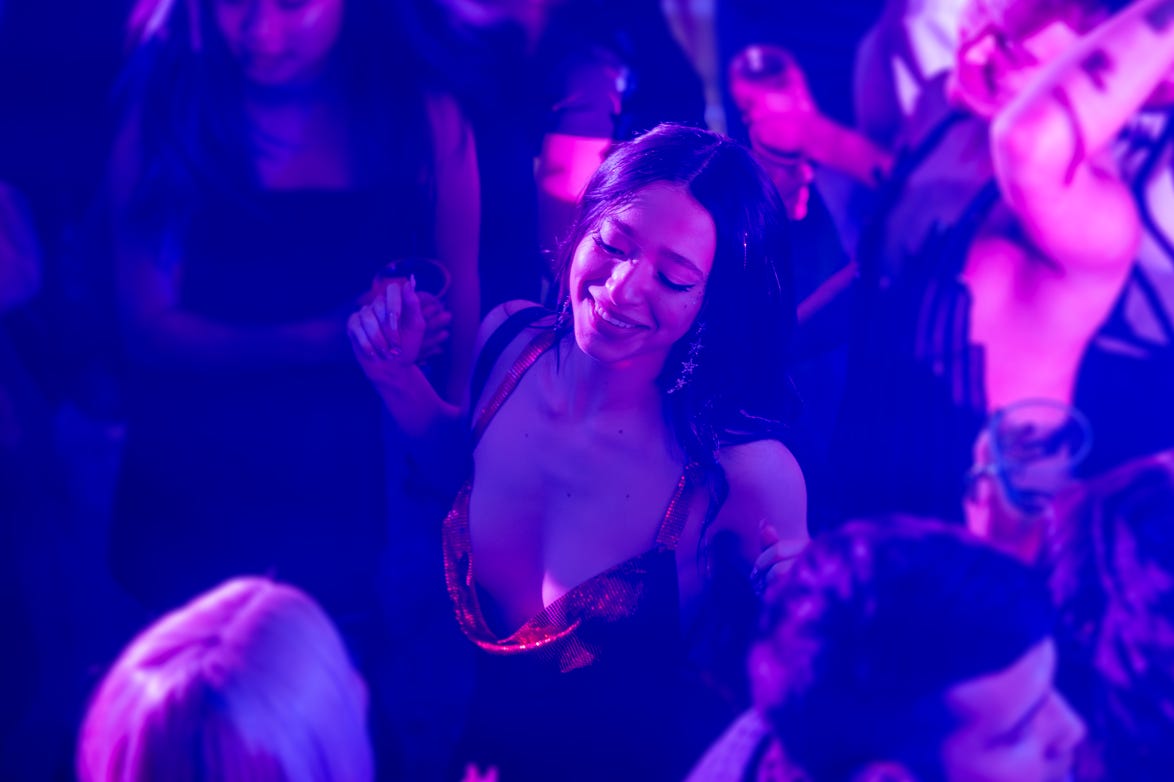'Anora' Is Funny, Moving, and Complex
Mikey Madison delivers a star-making performance in the latest film from writer/director Sean Baker.
Writer/director Sean Baker is the poet laureate of sex workers. This marginalized strata of those who sell their bodies is at the center of all of his most famous films. In Tangerine, it’s a pair of transgender friends. In The Florida Project, it’s a single mother living in the tourist-unfriendly outskirts of Orlando. In Red Rocket, it’s a disgraced adult film performer looking to climb his way back to the top.
In Baker’s latest, the Palme d’Or-winning Anora, it’s the title character, an exotic dancer and escort known to her friends as “Ani.” Portrayed by Mikey Madison in a star-making performance, Ani knows how to turn on the charm when her job calls for it, but is a foul-mouthed, no-bullshit Russian-American chick from Brooklyn behind closed doors. She’s not exactly waiting around for a white knight to show up and save her.
And yet a white knight does seem to show up in the form of Ivan (an often hilarious, often enraging Mark Eydelshteyn), known to his friends as “Vanya” (the similarities between the couple’s names are notable). The hard-partying son of a billionaire Russian oligarch (he says he’s 21 but he looks about 15), Ivan quickly takes a shine to Ani, and after a handful of “dates,” ostensibly proposes they re-enact the plot of Pretty Woman: Ani will be Ivan’s exclusively “girlfriend” for a week, and Ivan will pay Ani $15,000. Seems like a good deal to Ani, especially given that she genuinely likes Ivan, a goofy, freewheeling spirit capable of giving her a taste of the high life.
Things become more complicated during a trip to Las Vegas, when Ivan impulsively proposes, purportedly because marrying an American will allow him to stay in the country. Ani greets the proposal with an appropriate amount of cynicism, but she accepts once she’s confident that Ivan isn’t kidding around. They’re quickly wed, and for two glorious weeks, it appears as though Any has indeed found a Prince Charming to whisk her away to his castle, where they’ll live happily ever after.
Unfortunately, Ivan’s parents throw a wrench in the works. Mortified by the news that their son has married a “whore” (their words, not mine), they dispatch a pack of their underlings - wonderfully embodied to life by the actors Karren Karagulian, Vache Tovmasyan, and, especially, Yura Borisov - to collect Ivan and Ani and have the marriage annulled. Naturally, Ani doesn’t take this development lying down.
From the moment these employees of Ivan’s parents become involved, Anora turns into an unexpectedly uproarious screwball comedy, the pleasures of which are best left unspoiled. What’s amazing about the picture is that despite this sometimes surprisingly light tone, when the film switches gears in its final stretch to become a more serious-minded drama, it pulls the change off flawlessly. Anora exists within a convincing enough reality to smuggle in pathos with its pratfalls; it’s a cliché to tell you that this movie will make you laugh and cry, but… well… it will.
A humanist first and foremost, Baker treats Ani with the same empathy and dignity he extended to his prior protagonists. It doesn’t hurt that Madison is next-level brilliant in the role; she already made a huge impression as supporting psychopaths in Quentin Tarantino’s Once Upon a Time… in Hollywood and the 2022 reboot of Scream, but Anora makes it clear that those pictures barely scratched the surface of her capabilities. She’s funny and tough and smart and vulnerable and naive and about a dozen other adjectives, and even though Madison is a Los Angeles native, she 100% sells being a blue-collar stripper from Brighton Beach. If Anora doesn’t launch Madison into the stratosphere, I may lose what little faith I still have in the movie business.
For my money, Ani may be about as complex and layered a character as an actor could possibly hope for, and I love the way Baker tells us about her character without telling us about her character: for example, the telling difference in the way she behaves with her co-workers and the way she behaves with her sister/roomate.
Still, I do at least somewhat understand Sophie Monks Kaufman’s criticism that “the script… does not afford her character the same chances to be despicable as it did [the protagonist] Mikey Saber in Red Rocket,” resulting in “The opportunism of her attachment to Ivan [being] under-explored.” It’s also hard to deny that Ani becomes caught up in Baker’s male gaze… although a) I’m not sure you can make a film about strippers that isn’t at least a little gaze-y (see also: Hustlers, which was written and directed by a woman), and b) I think there’s merit in Alissa Wilkinson’s observation that Ani “becomes progressively more clothed as her character gradually becomes more vulnerable.”
Anora, like all of Baker’s sex worker chronicles, is ultimately not really about sex so much as it’s about class. Ani is anything but weak, and repeatedly demonstrates her will to fight back, often viciously, against victimization (when one male character attempts to physically restrain her, she handily breaks his nose). But the forces of wealth, Baker suggests, are the strongest forces of all, and it may simply be impossible for the have-nots to combat the haves. Anora is the of apotheosis of the filmmaker’s work, an unforgettable, addictive, and ultimately heartbreaking portrayal of one of modern society’s most depreciated and disenfranchised professions.



